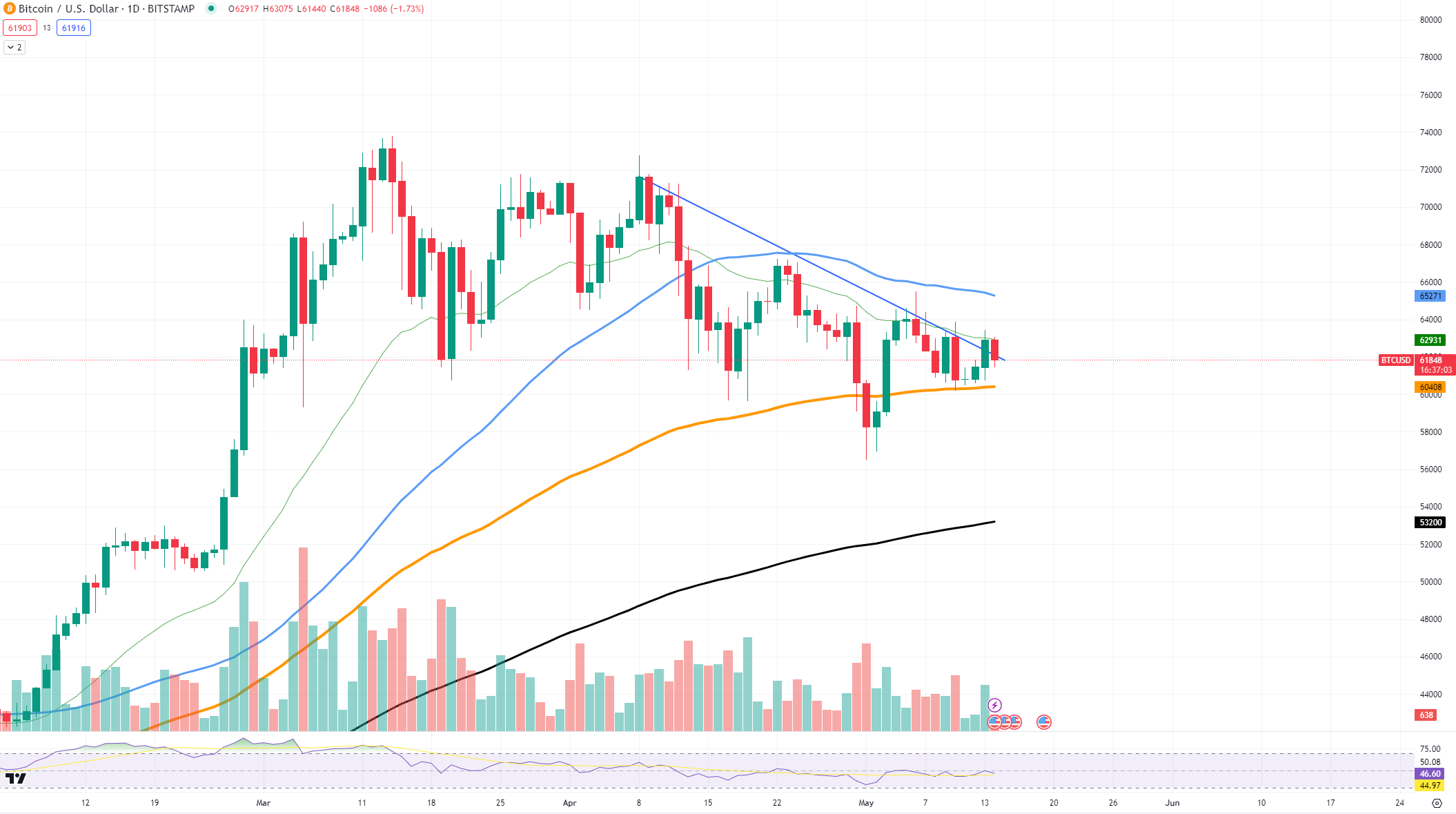Tue, 14/05/2024 – 8:34
Disclaimer: The opinions expressed by our writers are their own and do not represent the views of U.Today. The financial and market information provided on U.Today is intended for informational purposes only. U.Today is not liable for any financial losses incurred while trading cryptocurrencies. Conduct your own research by contacting financial experts before making any investment decisions. We believe that all content is accurate as of the date of publication, but certain offers mentioned may no longer be available.
Bitcoin is showing the potential for a significant recovery, driven by recent ETF activities and price stabilization. According to SoSoValue, the Hong Kong Bitcoin Spot ETF saw a net redemption of 519.5 Bitcoins on May 13, bringing the total number of Bitcoins held to 3,560. This ETF has experienced net redemptions for three consecutive days, with a single-day turnover of $4.25 million and total net assets of $219 million. Meanwhile, the HK ETH Spot ETF holds 13,350 ETH.
Advertisement
This trend of redemptions is not unique to Hong Kong; Bitcoin ETFs in Western markets are also experiencing similar patterns. While the initial reaction to net redemptions might seem bearish, these outflows can actually be bullish indicators as they often lag behind market sentiment. The current lack of inflows suggests that retail investors are regaining control, which can lead to a price recovery for Bitcoin.

Analyzing the Bitcoin price chart supports this optimistic outlook. The chart shows Bitcoin consolidating around a crucial support level. The 50-day moving average is positioned above the 200-day moving average, indicating a potential bullish trend. Additionally, the RSI is around 50, suggesting that Bitcoin is neither overbought nor oversold, providing room for upward movement.
Volume analysis reveals increased buying activity during recent dips, indicating strong support from buyers at lower price levels. This accumulation phase often precedes a price rally, as investors take advantage of lower prices to build their positions.
The market’s stabilization and the lack of significant inflows into ETFs imply that retail investors might be gearing up for a price recovery. Historically, when retail investors regain control, it often leads to a more sustained and organic price increase.

